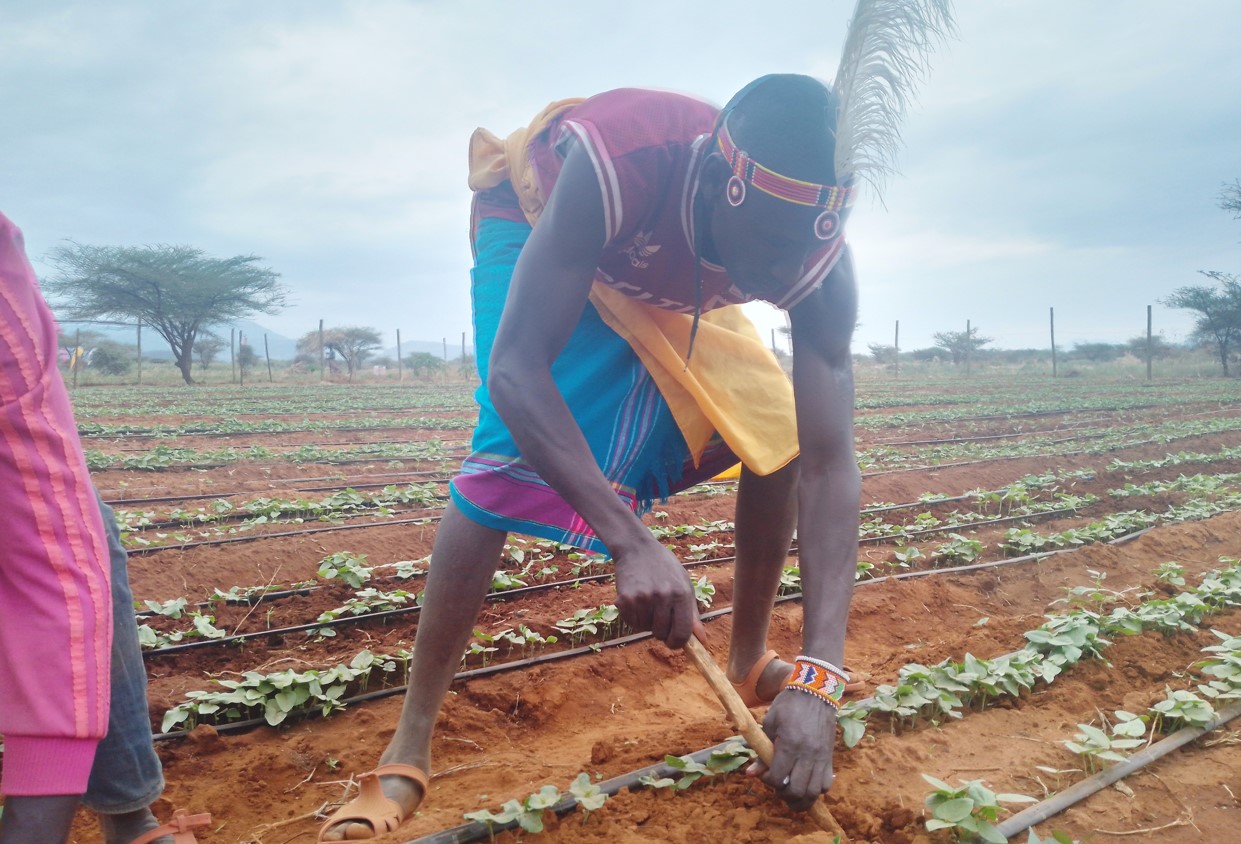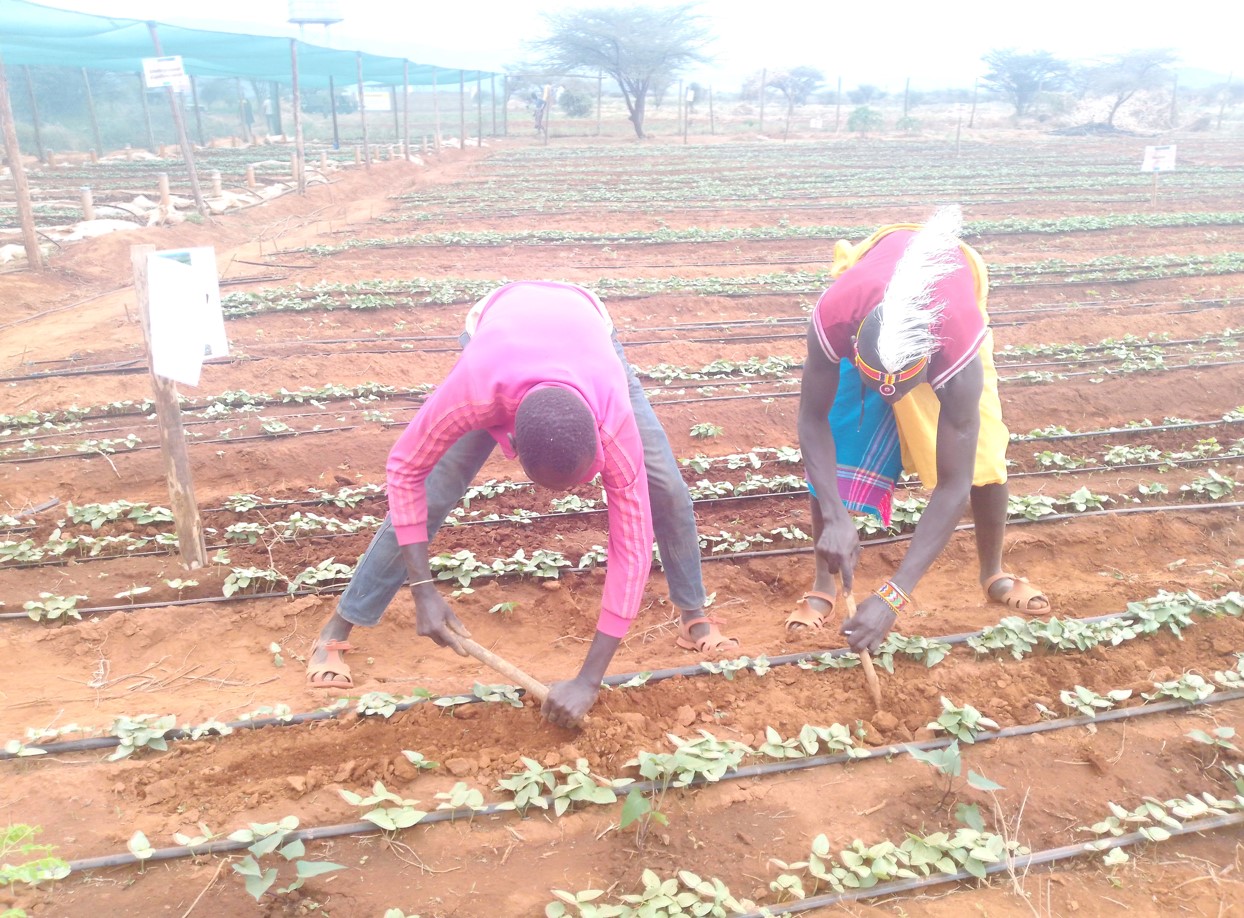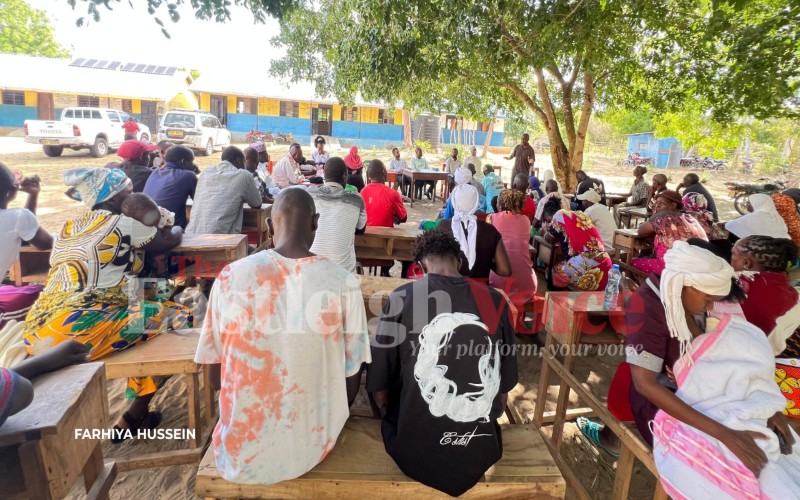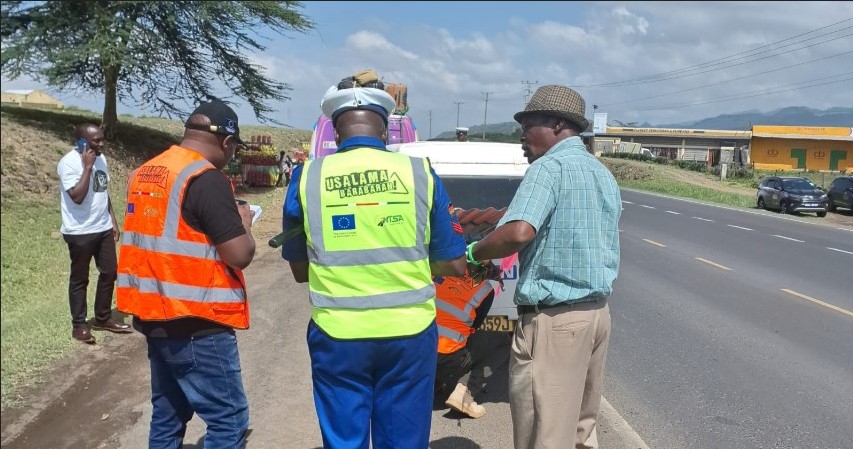Isiolo morans turn to crop farming after quitting cattle rustling

The young farmers say feeding their families has become easier and the health of their children has improved as more food is available.
A growing number of young warriors, or morans, in Isiolo, have been quitting the outdated cultural practice of cattle rustling and taking up crop farming as an alternative way of earning a living. This has been hailed as a move that has contributed to reduced crime.
Cattle rustling remains a security threat in northern Kenya. The morans carry out raids to “replenish” their stock and to show heroism, which puts their lives at risk.
More To Read
- Senate Bill proposes five-year jail term, Sh2 million fine for livestock thieves
- Police recover stolen camels in Turkana after coordinated operation
- Firearm smugglers from Uganda to Kenya mapped, arrests imminent, says Interior CS Murkomen
- Mother, four children killed in suspected love triangle arson attack in Isiolo
- Police in West Pokot recover 15 stolen goats in anti-theft operation
- Suspects sought in teen’s killing at a water point in Marsabit
But now morans from Attan village in Ngaremara have taken to cultivating a variety of crops including maize, beans, tomatoes, and vegetables, thanks to a water supply project established through a partnership between various development partners.
According to Christopher Ekiru, the morans ventured into farming on realising that the pioneer farmers in the area were making a living from the undertaking.
He said the risk of being attacked, being killed and livestock being stolen while in the grazing fields, especially during the dry spells, is no more.
Though cagey about the cattle rustling escapades, Ekiru said the raids were a risky venture as one could be killed by rivals or police officers pursuing the stolen animals.
“We do not have time to go for raids or even grazing. We have found gratification in farming, which has helped us beat hunger,” he said.
The proliferation of illegal firearms and recurrent drought, which forces pastoralists to move with their animals in search of water and pastures and results in massive loss of animals, are among the drivers of conflicts as communities seek to “restock” to cushion themselves against losses.
Another moran, Joseph Nabok, said farming is fulfilling and lucrative compared to pastoralism which forces one to walk long distances with livestock in search of water and pasture, spending less time with family.
He and Ekiru are part of a group of 10 men who have started a joint project about 50 metres from the Attan water system which was implemented by USAid Nawiri, Northern Rangelands Trust, COPAD, Jomo Kenyatta University of Agriculture and Technology (JKUAT) CETCIL project and Plant Village.
Health improvement
“Fending for our families has become easier because most of the food comes from the farm,” Nabok said, adding that the health of their children has improved.
Another moran who declined to be identified told The Eastleigh Voice that the cattle raids mostly occur during the wee hours of the morning or late in the evening.
 Christopher Ekiru (left) and Joseph Nabok working on a farm in Attan village in Ngaremara Ward, Isiolo County. (Photo: Waweru Wairimu)
Christopher Ekiru (left) and Joseph Nabok working on a farm in Attan village in Ngaremara Ward, Isiolo County. (Photo: Waweru Wairimu)
But he said with the farming project, the hassle of walking long distances with their animals, which sparks conflicts with other groups, is gone as herders are grazing and watering the animals locally.
The young farmers have also started a savings plan that allows them to access loans at a 10 per cent interest, in the event of emergencies.
Ekiru said 30 per cent of the proceeds from the joint farm is shared equally while the rest is injected into the savings plan.
“Cases of our children being sent home over school fees have reduced because we can access loans from the group and repay later,” he said.
He expressed optimism that farming will increasingly gain traction among the young warriors in Isiolo.
Asked if he still practices pastoralism, Ekiru said local communities were slowly embracing the idea of selling off the livestock and keeping manageable numbers to rid themselves of the huge losses they incur when drought strikes.
Currently selling produce locally, the youths hope to increase their productivity in the coming months and expand their market to neighbouring Meru, Samburu, and Marsabit counties.
John Echwa, an elder, said livestock theft had reduced significantly since the commissioning of the farming water project last year.
“Farming has enhanced food security and also contributed to the conservation of the environment because women no longer cut down trees for charcoal to fend for their families as they can access food at their farms,” Echwa said.
He said the pioneer young farmers were slowly encouraging others to abandon the retrogressive culture of cattle rustling and consider farming as an alternative source of livelihood.
“If a generator can be installed at the solar-powered borehole, the youths can access water at all times, which will help improve their productivity,” he said.
Youth leader Simon Lokolod said improved food security is a boon to pastoralism as families are no longer selling off livestock as they have enough food.
The local water system supports a 2.5-acre irrigation scheme, and community and livestock water supply and has a 100 cubic-metre elevated storage tank. The establishment of a community innovation centre is also underway.
During a recent inspection tour of the project, USAID Mission Director in Kenya David Gosney said the project sought to improve water access, enhance agricultural productivity and support sustainable livelihoods. He was accompanied by USAid Nawiri Chief of Party Margaret Kahiga.
Top Stories Today











































